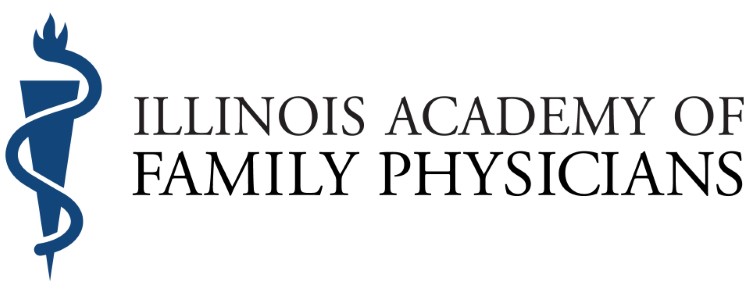State Advocacy
History
2020
Testimony to the House Executive Committee on Telehealth (May 22)
Testimony to General Assembly Health Groups on the impact of COVID-19 on physician practices and their sustainability (May)
IAFP briefing to state legislators (May)
IAFP Statement supporting HB 5510/SB3822 for meaningful Prior Authorization reform. Learn more about the Your Care Can't Wait coalition.
2019 Issues
Medicaid Background
HB 2160 Prior Authorization
HB 2665 – Youth PrEP
HB 2604 – Nurse Staffing ratios (IAFP Opposed, the bill was never called for a vote)
SB 1828 – Safe Needles and other Substance Abuse Harm Reduction
SB 2085 Collaborative Care Model for behavioral health
Tobacco Tax increase fact sheet
State Government Relations End of Spring Session Update (May 31, 2019):
As the General Assembly adjourned its spring session, the following bills IAFP supported passed both chambers and were sent to the Governor. Several were discussed during our Spring Into Action advocacy with legislators. Others were discussed in the Government Relations and Public Health Committees.
- HB1 Creates the Task Force on Infant and Maternal Mortality Among African Americans Act. Includes a family physician as a member of the task force, along with a pediatrician.
- HB2146 Creates the Health in All Policies Act - uses a health in all policies framework to review and make recommendations regarding how health considerations may be incorporated into the decision-making processes of government agencies to develop laws and policies to improve health and reduce health inequities.
- HB2160 Requires the Department of Insurance to develop a uniform electronic prior authorization form to be used by an insurer that provides prescription drug benefits when requiring prior authorization.
- HB2665 Consent by Minors to Health Care Services Act would align Illinois law with federal guidance on a minor’s ability to access preventive health care services, like PrEP, without parental consent.
- SB447 Amends the Family Practice Residency Act. Changes the title of the Act to the Underserved Physician Workforce Act. The purpose of this Act is to establish programs in the Illinois Department of Public Health to upgrade primary health care services for all citizens of the State, to increase access, and to reduce health care disparities by providing grants to residency programs, scholarships to medical students, and a loan repayment program for physicians (family physicians, general internists, general pediatricians, general surgeons, emergency physicians, and obstetricians) who will agree to practice in areas of the State demonstrating the greatest need for more professional medical care.
- HB2152 Creates the Mental Health Early Action on Campus Act.
- SB1731 Amends the School Code. With regard to the in-service training program on the warning signs of mental illness and suicidal behavior in youth, provides that a school district may utilize the Illinois Mental Health First Aid training program, established under the Illinois Mental Health First Aid Training Act and administered by certified instructors trained by a national association recognized as an authority in behavioral health, to provide the training.
- SB 2182 Provides that the Department of Public Health (in consultation with expert entities) shall study the feasibility of creating a statewide registry of advance directives and Practitioner Order for Life-Sustaining Treatment (POLST) forms.
- SB1321 Medicaid Omnibus bill - Contains provisions concerning an extended period for claims submissions outside the standard filing requirements; a dispute resolution process; annual publications on the Department's website of each Medicaid managed care organization's (MCO's) calculated medical loss ratios; a MCO's liability effective date; updated provider directories from MCOs; operational guidelines to enhance and improve operation performance of the State's Medicaid managed care program; and health care information released to managed care organizations. Contains provisions concerning managed care claim rejection and denial management among other items.
- SB1828 Overdose Prevention and Harm Reduction Act (SB1828) - supports overdose prevention efforts by better distributing naloxone, prioritizing high risk populations, promoting best practices, and improving the support the state provides to Drug Overdose Prevention Program (DOPP) organizations, among other initiatives, like the syringe access program under the Department of Public Health.
- SB2085 Replaces the definition of "psychiatric Collaborative Care Model" with language providing that the term means the evidence-based, integrated behavioral health service delivery method, which includes a formal collaborative arrangement among a primary care team consisting of a primary care provider, a care manager, and a psychiatric consultant.
|


